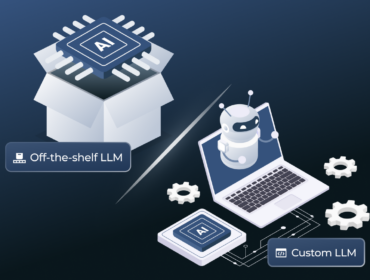Although blockchain is still in its infancy (First appearing in 2009), today it is used in many areas of life, from logistics and sales to finance and medicine. At the World Economic Forum in Davos, it was estimated that by 2027, 10% of all global GDP will be stored on blockchain networks.
Blockchain technology is most widely used in the financial and banking sectors. Let’s go into some of the reasons for blockchain becoming such an integral tool in these industries, and in particular, payment processes.
What is Blockchain in Payments
When you hear about blockchain, the first thing that may come to mind is something about cryptocurrencies and, in particular, Bitcoin. But in fact, its scope is much wider. Blockchain allows a user to quickly and efficiently create, store, and archive records for any financial transaction, simplify interactions between partners and streamline many other important processes.
The word “blockchain” refers to the “chain of blocks”. This name accurately reflects the idea of the blockchain. It can be compared to a necklace, where each bead (block) of the necklace takes the form of a record of an action, and the chain of beads cannot be broken. Blockchain is an indestructible digital record of actions.
Each block represents a specific digital code (not just numeric), and every subsequent block contains the information of the previous block. Thus, this is not only a database but also a method of encrypting and transferring data.
All over the world, blockchain technology is actively used to transfer cryptocurrencies. If you have ever sent cryptocurrency via a blockchain, thousands of computers around the world will have confirmed and stored all the information about the transfer.
The process of sending a transfer only takes a few minutes. Money on a blockchain cannot be lost or counterfeited. There are no third parties or intermediaries, and the accuracy of the calculations is guaranteed by the mathematical accuracy of the technology.
How Blockchain is Changing Payments
Blockchain can significantly change the way payments are processed. Here are several benefits:
It Excludes Intermediaries
A person transferring money usually has to pass several intermediaries to make a payment. These are the payment gateway, exchange mode, issuer, and so on. Their services are available for a fee and the transaction takes longer and is less insecure.
With blockchain payments you can:
- Authenticate transactions without intermediaries
- Secure the transaction data
- Quickly create a cryptocurrency wallet and instantly use it
The use of blockchain allows you to eliminate countless authentication steps while automating payment processes.
It Ensures Quick and Fair Cross-Border Payments
In early November 2021, Juniper Research analysts released a study stating that the adoption of blockchain for cross-border settlements will lead to greater savings for banks: from $301 million in 2021 to $10 billion by 2030. This technology, according to experts, will help stakeholders take advantage of the improved transparency and traceability of payments that blockchain provides, which is a critical advantage in the omnichannel payments market.
Transferring funds abroad may take several days. In addition, the transferer will have to pay a commission (from 1% of the amount). In cryptocurrency networks, transfers only take a few minutes to complete and are much cheaper. A transaction for 45,000 bitcoins (about $280 million) in the summer of 2018 on the blockchain cost only $ 0.04 and was completed in minutes.
In such cases, blockchain technology can significantly increase the speed of operations and reduce or even completely eliminate commissions.
Note that old blockchains such as Bitcoin and Ethereum have low bandwidth and thus a transaction may still take several days to complete. In order to transfer funds in the short term it is recommended to use new blockchains such as Solana, Algorand, Avalanche, Cardano, Fantom.
It Enables Safe and Immutable Transactions
High-level transparency and security are significant benefits of blockchain technology.
The details of all transactions are:
- stored in the blockchain
- immutable
- visible to everyone
Every block contains its own hash and the hash of the previous block. They are chronologically linked, making it impossible to tamper with the records of a blockchain, as any change would be visible.
Your payments are authentic and safe, ensuring that no change can be made retroactively (to forge reporting). Blockchain increases the level of trust between every participant in a transaction.
It Automates Payments with Smart Contracts
For individuals running businesses, smart contracts are a great technology for:
- significantly reducing payment times
- completing instant transactions
- automating payments
A person who writes a smart contract should mention all the requirements needed to be met for a payment to be processed. Once met, the recipient instantly receives their money.
To be more clear, consider a company that hires a content writer to produce some type of content. This person will receive their salary immediately after they provide this particular piece of content with all the requirements specified in the smart contract, rather than having to wait until the end of the month for payday.
Related case study: Payment System Development
How does the Blockchain Payment System Work?
The process of organizing payment with the help of blockchain technology is not complicated. Let’s use an example to see how it works.
You live in the USA and you have to transfer $5,000 to a person living in Italy. Both of your banks support working with blockchain technology, allowing the payment to be processed as follows:
- You send money from your bank to the recipient’s bank.
- The bank in Italy will receive the request for the transfer.
- After the recipient’s confirmation, the bank will approve the transfer.
- After approval, the money will be deducted from your account and transferred to your bank’s pool account.
- On your bank’s pool account, the money will be converted into Bitcoins (or into a different blockchain currency).
- The Bitcoins will then be moved to a specific network where they are converted into Euros.
- The $5,000 will be transferred to the recipient’s bank account in Italy in Euros.
Converting the payer’s local currency into Bitcoin enables both parties to bypass existing banking infrastructure, accelerate payments, and reduce costs. International payments in these cases can be delivered within one to three days.
What to Expect with Blockchain in Payments?
Blockchain market researchers expect that blockchain adoption will grow to reach two billion cross-border blockchain transactions by 2030. They claim that most payment participants don’t want to change from their old practices, and this is the main obstacle standing in the way of blockchain technology’s further adoption.
This is mainly because companies don’t have a sufficient understanding of how to implement blockchain payments. That’s why Unicsoft helps organizations adopt blockchain in the financial sector and get measurable ROI from it.
Doubts about blockchain shouldn’t prevent you from implementing innovations, streamlining workflows, and making your customers and partners happier. Contact the Unicsoft team for a consultation and start building a comprehensive solution for your business.





![Blockchain in Payments: Disrupting the Financial and Banking Sectors What’s the EU Artificial Intelligence Act and How to Comply? [Webinar]](https://unicsoft.com/wp-content/uploads/2024/03/Cover_1140_v1.1-370x280.png)

